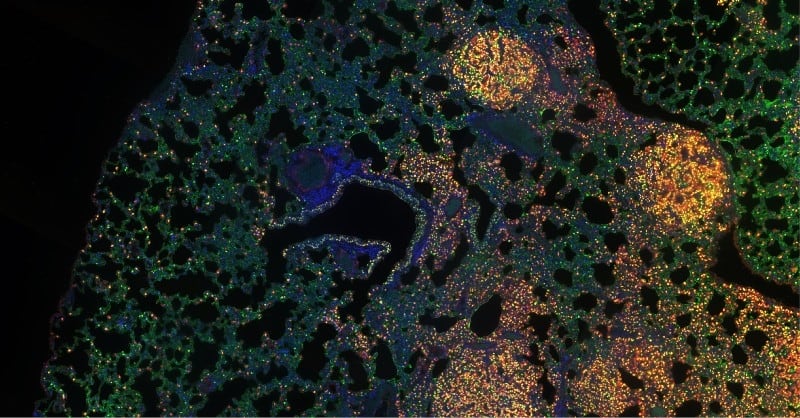Targeted therapies have changed the game for cancer patients with tumor-driving mutations like ALK or ROS. But cancer cells can mutate their way around these drugs, developing resistance so they can keep growing. Nuvalent is working on new kinase inhibitors aimed at overcoming this resistance with fewer side effects than current options, and it’s starting with lung cancer.
The company launches with $50 million from Deerfield Management to advance two non-small cell lung cancer programs into the clinic. It plans to start a phase 1/2 study for the first, NUV-520, a ROS1 inhibitor, in the second half of this year and for the second, NUV-655, an ALK inhibitor, in the first half of 2022. Both are designed for patients whose cancer has developed resistance to current options.
Kinase inhibitors work by binding to a specific site on a specific kinase enzyme produced by tumor-driving mutations. Over time, cancer cells develop resistance by changing that binding site so the drug no longer fits there, said Nuvalent founder Matt Shair, Ph.D., a professor of chemistry and chemical biology at Harvard University.
“You have to design a molecule that fits back into that binding site, and it gets harder and harder to do that as you go through subsequent rounds of treatment,” he added.
Nuvalent is using structure-based drug design and chemistry to design small molecules that fit into those altered binding sites and—crucially—do not bind to other enzymes that look like that drug target but are found in healthy tissues.
“If you take ROS1, there is an off-target kinase that looks just like ROS1 called TRK,” Shair said. ROS1 inhibitors that also bind to TRK can cause nasty side effects that make patients decide to stop treatment or prevent doctors from prescribing the highest, most effective dose of the drug possible.
Though Nuvalent’s first focus is non-small cell lung cancer, it can expand in any number of directions.
“It’s known that ROS1 and ALK are present in other tumor types … We could envision strategies where we explore the activity of those particular compounds in patients with other tumor types,” Nuvalent CEO Jim Porter, Ph.D., said.
Besides addressing resistance, Nuvalent could eventually develop drugs for the original, unmutated enzymes targeted by earlier generations of kinase inhibitors. If it can deliver new drugs against well-known targets but with fewer side effects, more patients could benefit from targeted therapy.
Nuvalent’s founders got together in 2017 to figure out how they could meet the needs of cancer patients through a new biotech company. Shair and Porter’s chemistry background is a big part of Nuvalent’s approach, but input from oncologists also plays a major role.
“There’s a potential for us to make an impact here, and the best source of figuring that out is going directly to the physicians,” Porter said. “We brought in this understanding from their perspective early on in the company: What are the medical needs of the patients you treat? What are the limitations of existing therapies for these patients? And as chemists, could we try to create solutions for those specific needs?”
As it moves toward the clinic, Nuvalent looks forward to bringing on new staff, partners and investors and applying what it learns from its lead programs to its earlier-stage pipeline.
“We already have three other projects in the discovery phase and we are backfilling that with even more projects,” Shair said. “We see our insights being able to be applied to many, many targets in the targeted kinase therapy space.”

